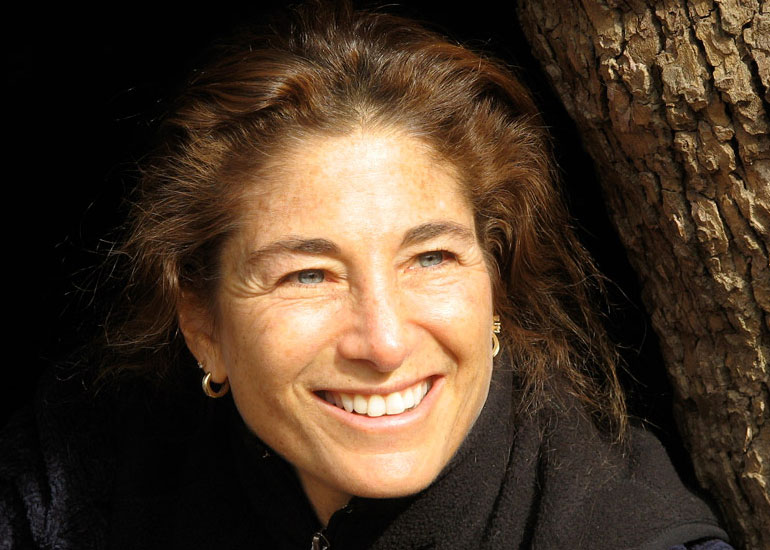
Tara Brach, PhD, is a psychologist, meditation teacher, and author of the best-selling books Radical Acceptance and True Refuge. She is founder of and senior teacher at the Insight Meditation Community of Washington, DC, and teaches Buddhist meditation at centers in the United States and Europe. Tara's podcasted talks and meditations are downloaded nearly a million times each month. Her teachings blend Western psychology, Buddhist psychology, Eastern meditation practices, and mindful attention to the inner life with a full, compassionate engagement with the world. Tara Brach: To begin to feel your feelings—especially if they are intense or difficult—you need to create a welcoming, kind environment. You can think of your feelings as wild creatures that hide out in the woods, and the only way they'll come out into the field is if they feel safe enough. They're parts of your psyche, but they hide in the shadows when it's not safe. In order for them to feel safe to come into full consciousness, they need to feel a kind, gentle receptivity from you. Tara Brach: Feelings will come and go, and it's not necessary with every arising feeling to take a deep dive. But you will need to work with those that you habitually run from if you want to wake up and be fully openhearted. When a feeling comes up—let's say it's fear—you can simply recognize it and name it by saying, "I sense fear here." When you witness and name what's there, you free yourself from its domination. There's been research done at UCLA that shows that when you name an emotion, it activates the frontal cortex and helps to sooth and comfort the amygdala, lowering the reaction in the limbic system. After you've named the emotion, the next step is to allow it to be there—to have the conscious intention to give room to whatever has come out of the woods. There are two questions I find useful to bring a full, present attention to difficult emotions. The first is, "What is happening inside me right now?" Try to contact the felt sense in your body. Investigate where the feeling lives and how it's expressed. Feel your throat, chest, and belly—feel where the emotions actually live in your flesh. Then ask yourself, "Can I be with this?" or "Can I let this be?" This is a critical element in all emotional healing—being able to be with what you're feeling and sense what the vulnerable places in you need. In some way, offer the message that's needed, whether it's one of kindness, gentleness, or care. You can say to the emotion, "You belong." Even if it's fear or shame, I will say, "You belong. You are a wave in my ocean." As soon as you give the message that "this belongs too," you signal there's no resistance, and that gives the space for the emotion to unfold, release, and be integrated into a greater whole. Tara Brach: An emotion is sustained by a looping of a thought and a felt sense in the body. To allow it to express and move on, we need to meet both the thought and feeling with mindful awareness. If there's a feeling of fear but you have no idea that you're telling yourself you're going to fail at that presentation next week, then you're only partly in touch with the emotion. If you notice the anxious thoughts but you don't feel it in the body, you're only partly conscious of the emotion. Whatever is not in conscious awareness binds us. As you include the thought pattern and felt sense in a kind and open presence, the sense of identification with the emotions begins to dissolve. It is free to come and go naturally. It becomes a wave that doesn't define you.  This interview was conducted on behalf of 1440 Multiversity by Jenn Brown—a freelance writer, editor, producer, and educator.
This interview was conducted on behalf of 1440 Multiversity by Jenn Brown—a freelance writer, editor, producer, and educator.
1440: What's the first step to beginning to feel your feelings?
1440: What happens next after we've welcomed the feeling into our consciousness?
1440: What about feelings that keep recurring because of thoughts we repeatedly think?
Compassionate Inquiry
Gabor Maté, MD, Sat Dharam Kaur, ND, Adyashanti, Lissa Rankin, MD, Laura Inserra, James Doty, MD, Zaya and Maurizio Benazzo
March 3 - 8, 2019
As a special feature of this transformative program, Dr. Gabor Maté will lead conversations with spiritual teacher Adyashanti and master coach Lissa Rankin, MD, on separate evenings during the week. Compassionate Inquiry Spiritual practices can help soften shame, confusion, anger, and...Stay Informed
Sign up and receive insider offers and flash sales in your inbox every week